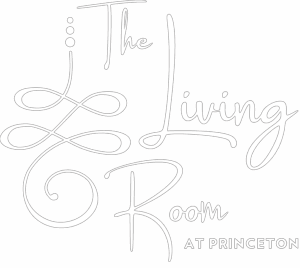Addiction can be caused by a wide variety of factors, however, many people who struggle with substance abuse often have an underlying mental health condition. When you have both, this is known as a co-occurring disorder. According to the Substance Abuse and Mental Health Services Administration (SAMHSA), about 9.2 million people suffer from co-occurring disorders.[1]
While every mental health condition can co-occur with addiction, some are more common than others. One of the most common illnesses to occur with substance use disorders is depression. The National Library of Medicine (NLM) reports that people with depression are twice as likely to suffer from a substance use disorder.[2]
The relationship between depression and addiction is complex, as it can occur in a few different ways. First, people with depression might begin to abuse drugs and alcohol as a form of self-medication. On the other hand, substances can cause someone to experience depression and the two conditions have similar risk factors.
Symptoms of Depression
Depression can manifest in various ways, and its symptoms can vary from person to person. Some common signs and symptoms of depression include:
- Persistent sadness
- Loss of interest or pleasure
- Changes in appetite or weight
- Sleep disturbances
- Fatigue or low-energy
- Feelings of worthlessness or guilt
- Difficulty concentrating
- Agitation or restlessness
- Physical aches and pains
- Thoughts of death or suicide
How is Depression and Addiction Connected?
Depression and addiction are the most common co-occurring disorders. According to the NLM, 16.5% of people with major depressive disorder suffered from alcoholism while 18% had a drug addiction.[2]
First, people with depression may begin to abuse drugs and alcohol to combat feelings of hopelessness, loneliness, and even issues like sleep disturbances. Additionally, both depression and addiction have similar risk factors, which means many individuals may be predisposed to developing both of them. And lastly, abusing substances can increase a person’s risk of dealing with depression.
Understanding the relationship between depression and addiction can help motivate you to seek the support you need. These co-occurring disorders are connected in the following ways:
Self-Medication
Depression can cause a myriad of symptoms, from persistent feelings of sadness and pessimism to physical issues like fatigue and lack of concentration. As a result, untreated depression can make it difficult to perform in everyday life. Unfortunately, this might lead someone to begin abusing drugs and alcohol to cope.
When someone starts medicating their depression with substances, they are in danger of developing an addiction. Sadly, the use of drugs and alcohol will only worsen their symptoms of depression over time, making it vital that they seek treatment for both conditions.
Brain Changes From Substance Abuse
Drug and alcohol misuse can actually cause changes to your brain’s structure and function. As a result, it could cause you to become more likely to struggle with mental health issues like depression.
According to the NLM, chronic use of central nervous system depressants like alcohol or opioids can lead to depressive symptoms such as poor concentration, a lack of interest in previously enjoyed activities, and trouble sleeping.[2]
In other words, continuous abuse of substances can lead to the development of co-occurring depression.
Shared Risk Factors
Depression and substance use disorders both have their own set of risk factors that make you more likely to develop the condition. With that being said, both of these disorders share a variety of risk factors, which means having one condition causes you to be more likely to develop the other.
The shared risk factors between depression and addiction include:
- Genetics and familial links
- Experiencing traumatic events
- Stressful life events like marriage, divorce, or getting a new job
- Social isolation
- Environmental factors like poverty or toxic relationships
If you relate to the risk factors mentioned above, it is best to receive treatment sooner rather than later. Working through these risk factors can prevent you from developing co-occurring addiction and depression.
How Does Treatment for Depression and Addiction Work?
Since addiction and depression can affect you at the same time, they are best treated simultaneously. If you do not treat both conditions, the untreated illness could cause a relapse in the other. Thankfully, dual-diagnosis rehab programs combine traditional addiction treatment methods with mental health recovery services.
During treatment for depression and addiction, you will receive the following services:
- Medical detox to treat withdrawal symptoms
- Individualized treatment planning
- Behavioral therapy to address negative patterns of behavior associated with both depression and addiction
- Psychoeducational support groups
- Group counseling for depression and addiction
- Holistic treatments that provide healing for the mind, body, and soul
- Medications to relieve withdrawal symptoms and substance cravings
- Medications to manage the symptoms of depression
- Relapse prevention planning to prevent addiction relapses in the future
This combination of treatment methods will allow you to manage your depression and overcome the urge to abuse drugs and alcohol. You can receive dual diagnosis treatment for co-occurring depression and addiction in both inpatient and outpatient programs.
Find Treatment for Depression and Addiction
If you or a loved one suffers from co-occurring depression and addiction, it’s time to seek professional help. Dual diagnosis treatment centers like The Living Room at Princeton can arm you with the tools you need to regain control over your life. We offer integrated and personalized care that addresses both issues simultaneously, providing you with a path to a balanced and healthy life.
Co-occurring disorders can be challenging, but they are treatable. Our Co-Occurring Disorders Program is here to guide you toward a healthier, more balanced life. We believe that with the right support and comprehensive care, you can break free from the cycle of addiction and mental health struggles.
To learn more about the relationship between depression and addiction and how treatment works, contact us today.
References:
- The Substance Abuse and Mental Health Services Administration (SAMHSA): Co-Occurring Disorders and Other Health Conditions, Retrieved January 2024 From https://www.samhsa.gov/medications-substance-use-disorders/medications-counseling-related-conditions/co-occurring-disorders
- The National Library of Medicine (NLM): Mood Disorders and Substance Use Disorder: A Complex Comorbidity, Retrieved January 2024 From https://www.ncbi.nlm.nih.gov/pmc/articles/PMC2851027/

